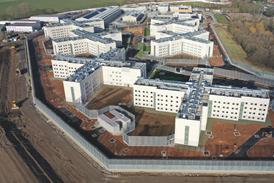Report finds there could be little or no economic boost for two years or more as a result of the government’s planning reforms
There could be little or no economic boost for two years or more as a result of the government’s reforms to the planning system, an analysis of the proposals has found.
The report, commissioned by the National Trust, the RSPB and the Campaign to Protect Rural England, found that claims made about the costs of the planning system have been overstated and there was no evidence that planning has large, economy-wide effects on productivity or employment.
It said the government planning reforms, which aim to radically simplify thousands of pages of planning guidance in the form of the 52-page draft National Planning Policy Framework (NPPF) would therefore have a limited impact on economic growth - negating one of the government’s stated reason for the reforms.
The report, by consultants Vivid Economics, said that there was unlikely to be any new development as a direct result of the NPPF until late 2013.
It added that this impact could be delayed further if, as recommended by the communities and local government committee, local authorities are given a transitional period to update their local plans.
“In either case it is difficult to see a large increase in the volume of development in the first two years and so unlikely that the change will contribute to the nation’s economic recovery in the near term,” the report said.
Neil Sinden, director of policy for CPRE, said: “Effective planning should not be seen as a choice between growth or the environment. As this report argues the aim of planning should be to secure long term wellbeing. It should give pause to all those who care deeply about the countryside and the role the planning system plays in improving our quality of life through shaping the places we live. We urge ministers to heed its finding before finalising their planning reforms.”
Ben Cowell, assistant director of external affairs for the National Trust, said: “Planning imposes costs but it also produces significant benefits. Without a strong planning system, our landscape would look very different today. Government needs properly to understand both sides of the equation before it reaches conclusions about the impact that planning has on the economy.
“This report is a vital contribution to the debate about how we deliver good development in the future, and prevent bad decisions from being made in the pursuit of short-term gain.”
Liz Peace, chief executive of the British Property Federation, said: “The media has been very quick to paint the development world as being against sound planning and truly sustainable development. That is absolutely not the case.
“Developers want to see plans put together and decisions made against a sound, well constructed evidence base. This report argues that such an evidence base needs to be wide-ranging and take into account not just traditional and easily measured economic impacts but also more amorphous concepts such as the availability of brown field land and the costs and benefits of green belts. We welcome this contribution to the debate.”


























2 Readers' comments